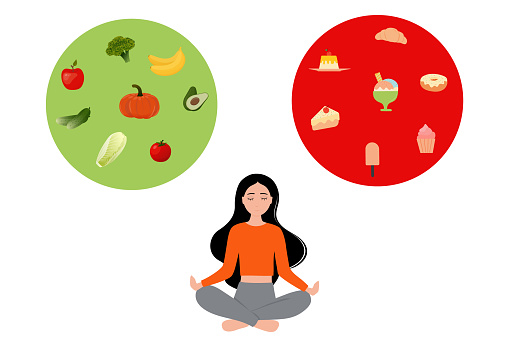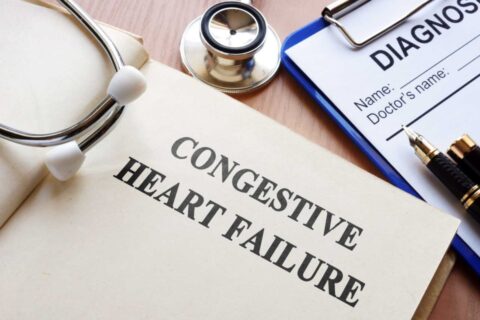Foods to Avoid if You Have Heart Palpitations

Foods to Avoid if You Have Heart Palpitations After Eating
Heart palpitations can be an unsettling experience, leaving you wondering about their cause and how you can manage them effectively. Many individuals notice that these irregular heartbeats often occur after eating and may suspect that their diet is the culprit. If you’ve been experiencing this sensation, slight tweaks to your food choices could make a significant difference.
Learning about heart palpitations, their symptoms after eating, which foods to avoid, and heart-healthy alternatives to include in your diet can significantly improve your ability to manage your heart health. Connecting with expert care in Sugar Land, TX ensures you have the support needed to maintain a healthier heart.
What Are Heart Palpitations?
Heart palpitations are sensations where your heart feels like it’s racing, fluttering, or skipping beats. These episodes can stem from various causes such as stress, dehydration, or even food choices. While infrequent palpitations are often harmless, recurring symptoms may require medical attention.
Noticing palpitations after eating? You’re not alone. This is actually common, and your diet could play a key role in these sensations.
Symptoms of Palpitations After Eating
If you’re experiencing palpitations after meals, you may notice the following symptoms:
- Heart Pounding: A forceful, loud heartbeat that you may feel in your chest or neck.
- Irregular Heartbeat: A sensation of skipped beats or a heart rhythm that fluctuates between fast and slow.
- Fluttering: A light, fluttering sensation in your chest that feels like your heart is flipping or doing somersaults.
While these symptoms may be harmless in most cases, they could be a sign that certain foods don’t agree with your heart.
Which Foods to Avoid if You Have Heart Palpitations
The foods you consume can directly impact the frequency and intensity of heart palpitations. Certain ingredients and nutrients are known to trigger irregular heartbeats in sensitive individuals. Below are key offenders to limit or avoid entirely:
1. Caffeine
Caffeine, found in coffee, tea, energy drinks, and chocolate, is a common stimulant that can increase heart rate and trigger palpitations in some individuals. If you’re prone to palpitations, try substituting with decaffeinated options or reducing your overall intake.
2. Alcohol
Alcohol can raise your heart rate and blood pressure, both of which can contribute to palpitations. It also acts as a diuretic, leading to dehydration, which may worsen your symptoms. Limiting alcohol consumption to an occasional light drink can help minimize risks.
3. Processed Foods
Foods that are high in sodium, such as chips, frozen meals, and canned soups, can elevate blood pressure and increase the likelihood of palpitations. These foods often contain high amounts of sugar, another common trigger. Opt for fresh, whole foods whenever possible.
4. Spicy Foods
While some people may tolerate spice well, spicy foods can irritate the esophagus and cause acid reflux, which may mimic or trigger heart palpitations. Reducing the heat level in your meals could offer relief.
5. Fatty Foods
Foods high in saturated and trans fats, such as fried foods and red meats, can increase cholesterol levels and lead to heart issues over time. These fatty foods can also cause acid reflux, which may trigger palpitations. Choose lean proteins like chicken, turkey, or tofu instead.
6. Sugary Foods
Sugary snacks and drinks can spike and then crash blood sugar levels, which may lead to adrenaline surges and subsequent palpitations. Minimize your intake of cakes, cookies, sodas, and other sweetened treats to help stabilize your heart rhythm.
Are There Other Causes of Heart Palpitations After Eating?
Yes! Heart palpitations can also occur due to factors beyond food choices. Common triggers include:
- Anxiety and Stress: Emotional distress can increase your heart rate and make palpitations more noticeable.
- Medications: Certain over-the-counter and prescription drugs can have side effects that include irregular heartbeats.
- Medical Conditions: Underlying health issues like hyperthyroidism, arrhythmia, or acid reflux could play a role.
If palpitations frequently disrupt your life, consulting with a cardiologist can help pinpoint the cause and provide targeted solutions.
Foods That Reduce Heart Palpitations
The good news? Some foods can actively help improve your heart health and prevent palpitations. Incorporate the following into your meals for a heart-healthy diet:
Magnesium-Rich Foods
Magnesium is essential for maintaining a healthy heartbeat. Foods rich in magnesium include:
- Almonds
- Avocado
- Dark chocolate (opt for unsweetened or minimally processed varieties)
Potassium-Rich Foods
Potassium helps regulate your heart rhythm and counteracts the negative effects of sodium. Good sources include:
- Bananas
- Sweet potatoes
- Tomatoes
Omega-3 Fatty Acids
Omega-3s are known to reduce inflammation and have cardioprotective benefits. Add these ingredients to your diet:
- Fatty fish like salmon or mackerel
- Chia seeds
- Walnuts
These foods not only soothe the heart but also support overall well-being.
Get Help From the Experts at Complete Cardiology Care
Understanding and managing heart palpitations, especially those related to food, is within your power. And when you need it, expert help is close by. At Complete Cardiology Care in Sugar Land, TX, we specialize in treating cardiac conditions, including heart palpitations.
Dr. Yassir Sonbol and his experienced team provide compassionate care and customized solutions to keep your heart healthy.
Contact us today at 281-912-3866 to schedule an appointment and take the next step toward a healthier heart.
With informed dietary changes and professional care, you can enjoy a steady heartbeat and a healthier life!


